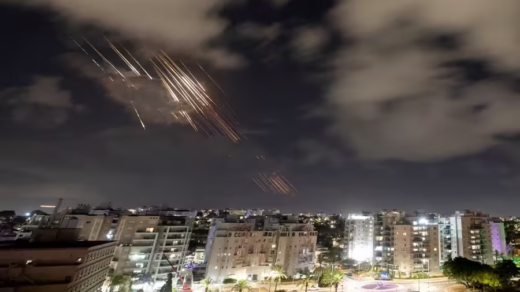
In the vast expanse of the Sahel, a region that stretches across West to East Africa, the freedom of the press is facing growing peril. Over the past decade, the Sahel has witnessed the loss of five journalists’ lives and the disappearance of six others. Reporters Without Borders (RSF) highlights two primary threats – the escalating presence of armed groups and the influence of military juntas seeking to control and silence the media. This article delves into the evolving challenges faced by journalists in the Sahel and their historical ties with Europe.
Covering the multitude of crises in the Sahel has become increasingly challenging for journalists, especially since military takeovers in several countries. RSF’s recent report paints a bleak picture, warning that the Sahel could become “the largest zone of non-information in Africa.” The expulsion of correspondents from French newspapers Le Monde and Libération by the junta in Burkina Faso further darkens this outlook.
This situation is not exclusive to Burkina Faso. The deteriorating conditions for local and international media have been persistent in Burkina Faso, Mali, Mauritania, Niger, Chad, and even the northern regions of Benin, all grappling with similar security challenges.
The RSF report describes the plight of journalists caught between the violence of jihadist groups and armed militias on one side and restrictions, pressures, media suspensions, and expulsions of foreign correspondents by authorities on the other. The arrival of the Russian private security company Wagner in Mali has further exacerbated the situation.
According to the report, five journalists lost their lives, and six went missing between 2013 and 2023. Nearly 120 journalists were arrested or detained during this period, with 72 cases in Chad alone. The report highlights attacks by jihadists and the disappearance of community radios that refused to adhere to their cause.
Vast areas have become inaccessible to journalists due to their high level of danger. Sources fear retaliation from both armed groups and authorities. In Mali, Burkina Faso, and Chad, the military sought to control the media through bans, restrictions, and even arbitrary arrests. RSF also reminds us of the suspension of French media outlets France 24 and Radio France Internationale (RFI) in Mali and Burkina Faso, leaving room for pro-Russian narratives supporting Wagner’s mercenaries and contributing to a proliferation of disinformation.
Pressures on the media, often under the banner of “patriotic treatment” of information, lead to compliant journalism and self-censorship on sensitive topics, such as Wagner and losses inflicted by jihadists. These conditions also fuel cyberharassment against dissenting voices. RSF also notes the worsening financial situation of media outlets, owing to the crisis and the cessation of state subsidies.
However, RSF does offer a glimmer of hope. The organization mentions the creation of mirror sites for RFI and France 24 to continue broadcasting. It also highlights the development of alternative methods for collecting information, media partnerships, and the growth of fact-checking initiatives.
The Sahel region is facing a growing threat to press freedom, as RSF’s report aptly illustrates. Journalists in the Sahel are confronted with multiple dangers, including violence from radical armed groups and arbitrary restrictions imposed by states. The freedom of the press is deteriorating rapidly, leading to a lack of reliable information in this part of Africa. To avert the Sahel from becoming a “zone of non-information,” it is crucial for regional governments to take immediate action. The rights of 110 million Sahelians to be informed must not be curtailed. The Sahel’s freedom of the press is at stake, and urgent measures are needed to protect it.
Written by Imane Moumen


